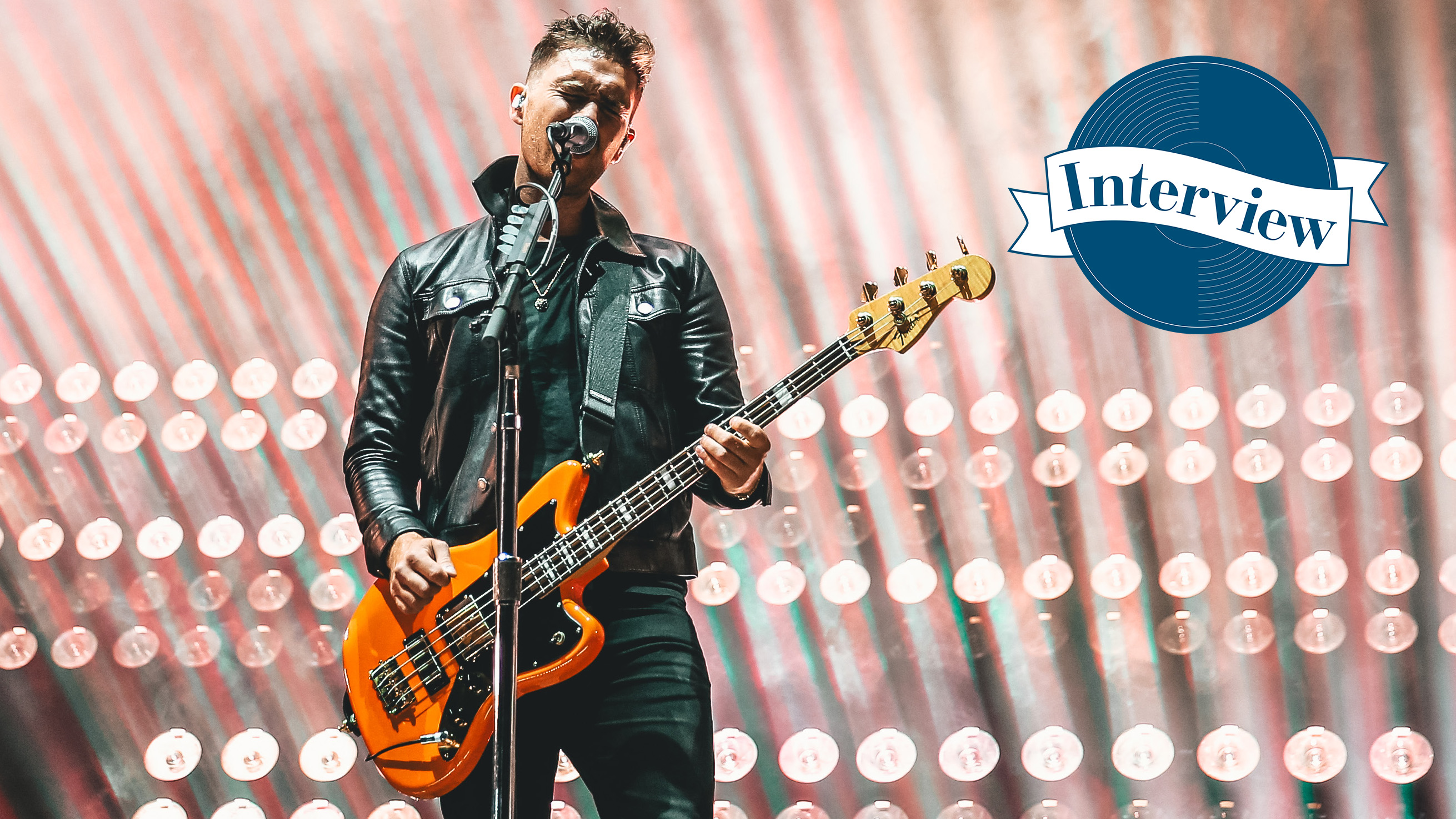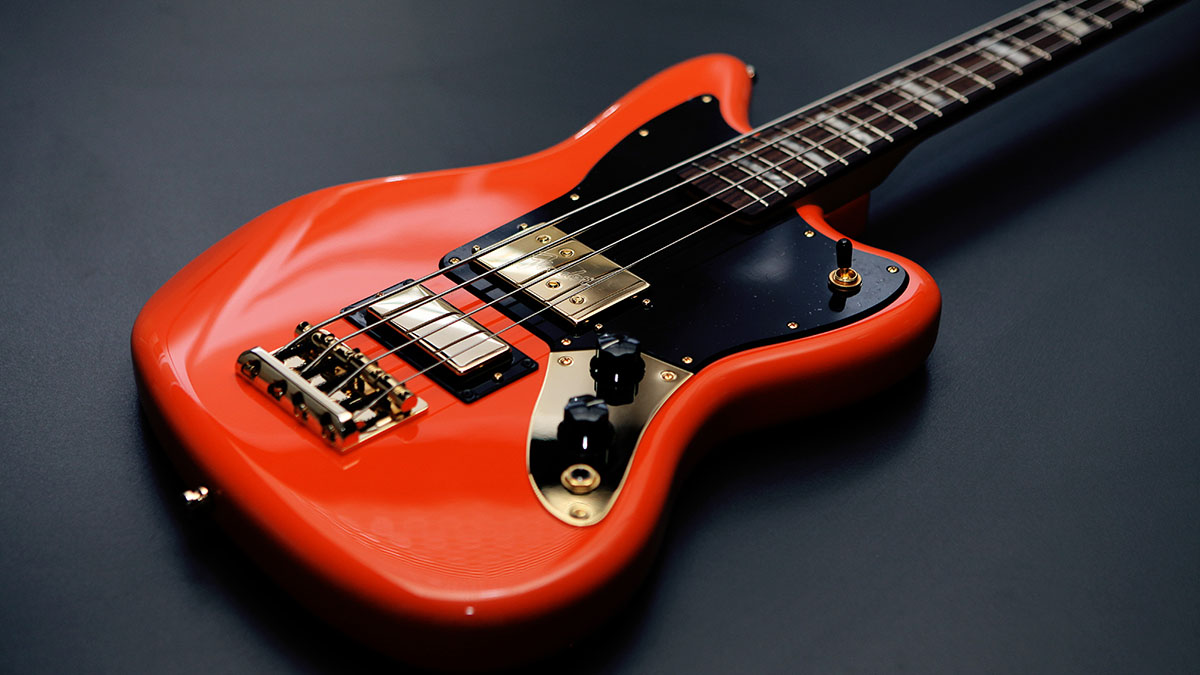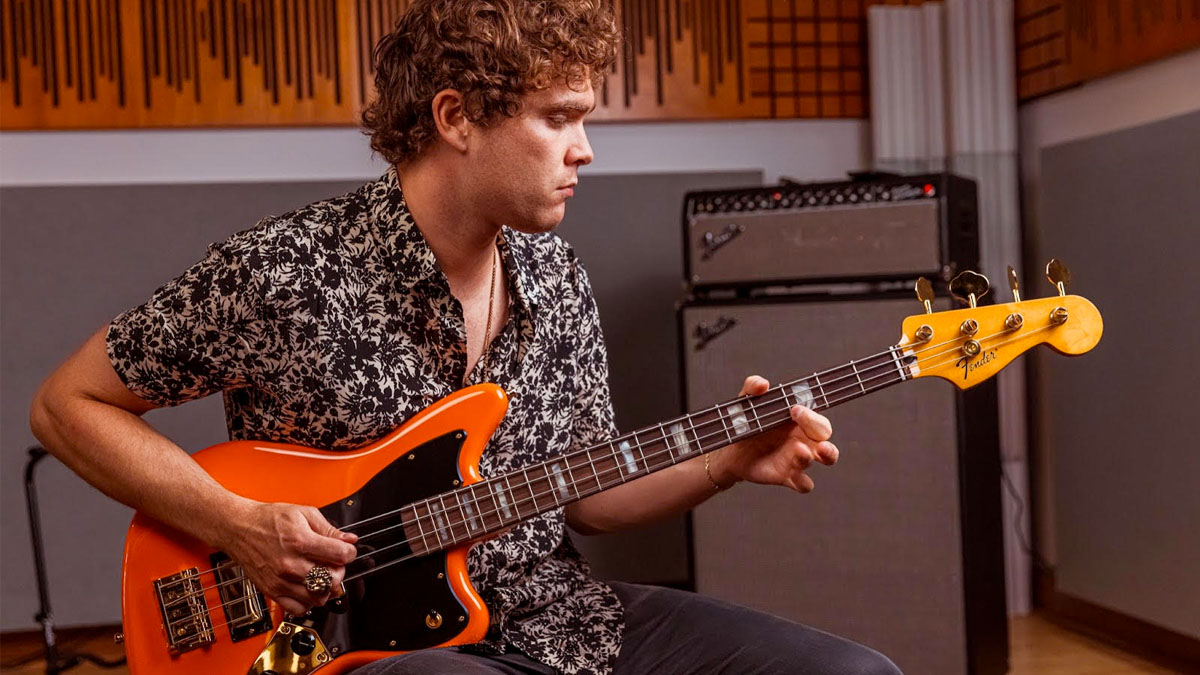"For me, full length or even medium length just never made sense" – Royal Blood's Mike Kerr on his Fender signature Jaguar bass and love of short-scale
"I got so used to playing short scales that even now, putting on a full-length bass feels like I'm trying to play the wing of a plane or something!"

Want all the hottest music and gear news, reviews, deals, features and more, direct to your inbox? Sign up here.
You are now subscribed
Your newsletter sign-up was successful
Royal Blood are now a decade into blazing a trail as the UK hardest-hitting rock duo, and frontman and bass player Mike Kerr has been playing Fender basses for almost his entire career. Having partnered relatively early on with the iconic company to develop a custom model for his use both live and in the studio.
To coincide with the release of the group's fourth (and UK chart-topping) album, Back To The Water Below, The Limited Edition Mike Kerr Jaguar Bass is being released as a signature model. We spoke to Mike to talk about the bass, how his sound has been built around this bass over the years and why the “perfect tone” should never be a distraction from the songwriting.
You've been playing Fender basses for a while now Was it an easy decision to partner with them for this signature model?
Mike: "Absolutely, yeah. I started with a Gretsch Electromatic and that was my introduction to bass, which got me thinking about building the sound that I use now. Very early on in my career, Fender made me a custom bass which is essentially what is being brought out now as the signature model. So yeah, it's the tools that I have worked with and built my sound around and toured with since, so this bass is a part of my musical DNA really."
You've singled out the custom humbuckers on this bass as a big part of its appeal for you. Can you tell us about them and how they are important for your tone?
"I think the most interesting humbucker is the custom one at the bridge. It will surprise people with how dramatic it is. Obviously there's a tone shift that happens anyway using that pickup, but when you use the pickup on this bass you'll notice it is pretty extreme. You'll lose a lot of the bottom end and it becomes very mid-range heavy, and I think it is very specific to my style in creating more guitar-registered sounds.
"It makes the bass really versatile, particularly in the studio when you want to overdub things and have a dramatically different sound. In this case, you can do that with just the flick of a switch. That's something I use a lot both in the studio and live, because it's just really extreme."
Want all the hottest music and gear news, reviews, deals, features and more, direct to your inbox? Sign up here.

On the topic of using it live, are you happy with the flexibility of this bass? Is it going to make up a regular part of your bass arsenal for live shows now?
"It's all I use, honestly. In the studio it's all I use, and it probably makes up 70% of the live show. I do switch to other basses live for other reasons, but the custom Fender is the staple bass at this point."
From day one, I approached bass with my own idea of how to play it
It's a short-scale bass as well. What draws you to shorter scale basses in particular?
"For me, full length or even medium length just never made sense. I just never understood them. From day one, I approached bass with my own idea of how to play it. My only previous experience of playing anything similar was guitar, and I kind of fell into playing bass. I never chose to do it, the opportunity presented itself to me and that's how it happened.
"I learned bass for a session gig in a couple of weeks just to cover someone, so I didn't go in with the intention of wanting to be a bass player. For me, I wanted it to feel more like a guitar because that's what was comfortable for me, what was familiar. Plus, the things I wanted to play were really guitarish, musically and tonally.
"Playing a shorter scale bass has more of a guitar-like feel, having the ability to get up to the 12th fret much easier and play riffs. I got so used to playing short scales that even now, putting on a full-length bass feels like I'm trying to play the wing of a plane or something! It's kind of all I know now, honestly."

As the sole strings guy in the band, you have a lot of sonic obligations to fulfill. Was that something you kept in mind while working on a signature model and how does the finished product help you to achieve that?
"I guess when it was built for me, it was the beginning of a relationship and I didn't want to put them or any of their ideas in a box before we'd even begun. I don't even believe I asked them to make me the bass, they approached me wanting to make something, and other than it having humbuckers I kind of left it open to them to do what they wanted. So my sound and the sounds I got out of it were kind of based off of what they built.
"I've always loved that shade of orange, too. It's very specific and something people always mention, which is a good thing."
Your fourth album, Back to the Water Below, is out in a few weeks. How important a role did your signature Jaguar play in the writing and recording process of that?
"There's a lot more piano on this record, which is how the majority of it was written. I felt more aware about how my sound was going to work with everything – my vocals, the piano, the different melodies going on, it actually got much more dialled in rather than hiding it behind a wall of sound."
It felt less about making it bigger or better, and more about sitting comfortably in those shoes and focusing more on the playing, the parts and the content
The perfect tone is essentially a never-ending journey, but how close would you say you are now on this record compared to your debut?
"It's funny, I feel that the sound I have developed over the years has become more settled on this album. It felt less about making it bigger or better, and more about sitting comfortably in those shoes and focusing more on the playing, the parts and the content.
"The last thing I really want at this stage is for a song to be held together by the tone. That feels like the wrong way around to me. It was more about getting great parts, and working out what tone I could develop to serve that part the best, and to serve the song the best too. I felt a lot more aware of that."
- For more information on the Mike Kerr Jaguar Bass visit Fender
Sam Drower is a sound engineer, musician and all-around music junkie based in Bristol, UK. He began contributing to MusicRadar in 2020, when the global pandemic brought live music to a screeching halt. When not behind the mixing desk for various bands, he is playing bass for blackened mathcore group Host Body.
